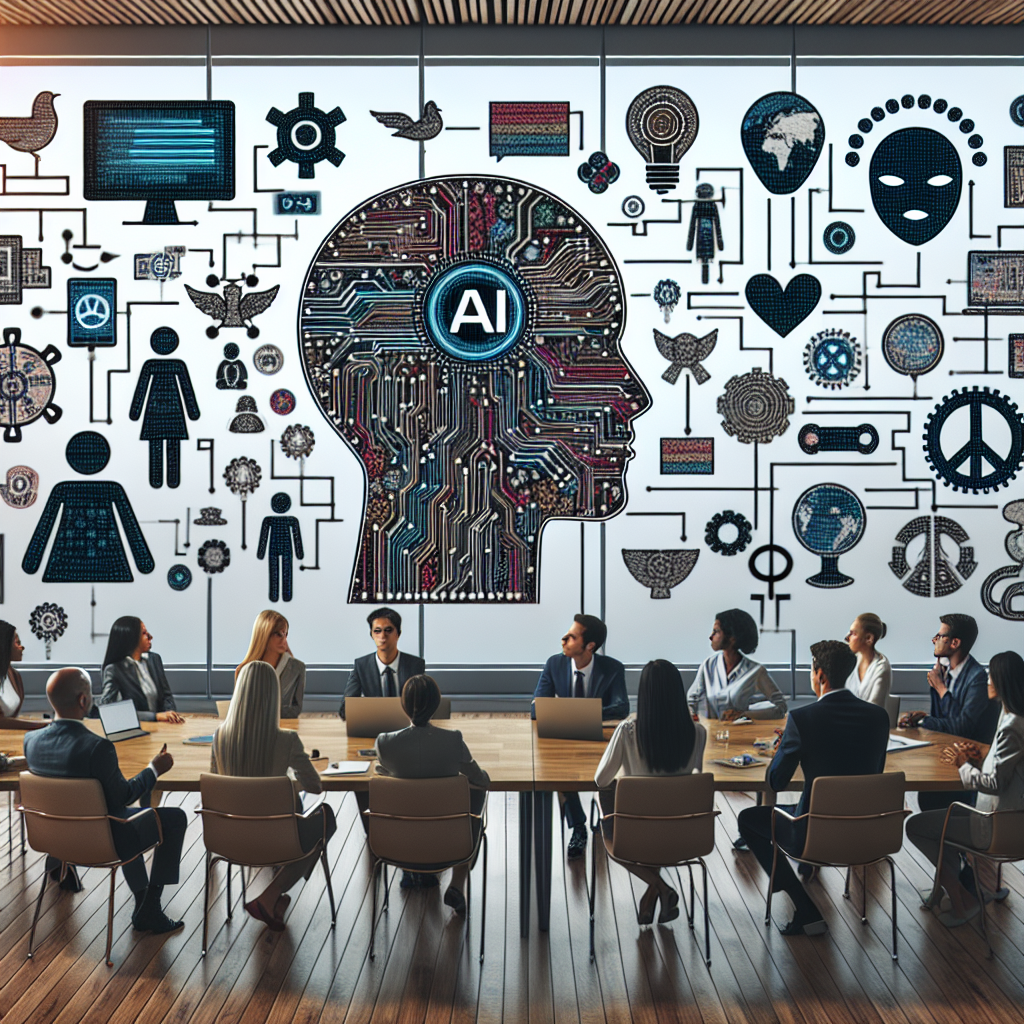The Impact of AI on Nonprofit Policy Advocacy and Social Change
Artificial Intelligence (AI) is rapidly transforming various industries, including the nonprofit sector. Nonprofit organizations rely on policy advocacy and social change to achieve their mission and goals. AI technology has the potential to revolutionize how nonprofits conduct advocacy efforts, gather data, and engage with stakeholders. In this article, we will explore the impact of AI on nonprofit policy advocacy and social change.
1. Data Analysis and Insights
One of the key ways AI is revolutionizing nonprofit advocacy is through data analysis and insights. Nonprofits collect vast amounts of data on various issues and populations they serve. AI technology can help nonprofits analyze this data more efficiently and effectively. AI algorithms can identify patterns and trends in data that humans may overlook, providing valuable insights for advocacy efforts.
By leveraging AI for data analysis, nonprofits can better understand the needs and preferences of their target audiences. This information can inform advocacy strategies and help nonprofits tailor their messaging to resonate with stakeholders. AI can also help nonprofits track the impact of their advocacy efforts and adjust their strategies in real-time based on data-driven insights.
2. Predictive Analytics
AI technology also enables nonprofits to use predictive analytics to anticipate future trends and outcomes. By analyzing historical data and identifying patterns, AI algorithms can predict how certain policies or social issues may evolve over time. Nonprofits can use this information to proactively advocate for policy changes or address emerging social issues before they escalate.
Predictive analytics can also help nonprofits optimize their advocacy campaigns by identifying the most effective strategies and tactics. By understanding which advocacy efforts are likely to yield the best results, nonprofits can allocate their resources more efficiently and maximize their impact. Overall, predictive analytics can empower nonprofits to be more strategic and proactive in their advocacy work.
3. Personalization and Targeting
AI technology allows nonprofits to personalize their advocacy efforts and target their messaging to specific audiences. By analyzing data on individual preferences and behaviors, AI algorithms can help nonprofits tailor their advocacy campaigns to resonate with different stakeholders. This personalized approach can increase engagement and support for advocacy efforts.
AI can also help nonprofits target their advocacy efforts more effectively by identifying the most influential stakeholders and channels for reaching them. By understanding where and how to engage with key decision-makers, nonprofits can maximize the impact of their advocacy campaigns. This targeted approach can help nonprofits achieve their policy goals more efficiently and effectively.
4. Automation and Efficiency
Another significant impact of AI on nonprofit advocacy is automation and efficiency. AI technology can automate repetitive tasks, such as data entry and analysis, freeing up time for nonprofit staff to focus on strategic advocacy efforts. By streamlining processes and increasing efficiency, AI can help nonprofits achieve more with limited resources.
Automation can also help nonprofits reach a wider audience and engage with stakeholders more effectively. AI-powered chatbots, for example, can interact with supporters in real-time and provide information on advocacy campaigns. This automated approach can enhance the reach and impact of nonprofit advocacy efforts, ultimately driving social change more effectively.
5. Ethical Considerations
While AI has the potential to revolutionize nonprofit advocacy, there are also ethical considerations that nonprofits must address. AI algorithms may perpetuate biases present in the data they analyze, leading to unintended consequences for marginalized communities. Nonprofits must be mindful of these biases and take steps to ensure that their advocacy efforts are inclusive and equitable.
Nonprofits should also consider the ethical implications of using AI to automate decision-making processes. AI algorithms may make decisions that impact individuals’ lives, such as determining eligibility for services or resources. Nonprofits must ensure that these decisions are transparent, accountable, and aligned with their mission and values.
Overall, nonprofits must approach the use of AI in advocacy with caution and consideration for the potential ethical implications. By prioritizing transparency, equity, and accountability, nonprofits can harness the power of AI to drive positive social change while minimizing potential risks.
FAQs
Q: How can nonprofits ensure that AI algorithms are not perpetuating biases in their advocacy efforts?
A: Nonprofits should regularly review and audit their AI algorithms to identify and address any biases present in the data. They should also prioritize diversity and inclusion in their data collection and analysis processes to mitigate bias.
Q: What are some examples of nonprofits successfully using AI for advocacy?
A: One example is the ACLU, which uses AI algorithms to analyze court decisions and identify patterns of discrimination. Another example is Amnesty International, which uses AI to analyze satellite imagery and track human rights abuses around the world.
Q: How can nonprofits leverage AI to engage with supporters and stakeholders?
A: Nonprofits can use AI-powered chatbots, personalized messaging, and targeted advertising to engage with supporters and stakeholders more effectively. By tailoring their advocacy efforts to resonate with specific audiences, nonprofits can increase engagement and support for their cause.
Q: What are some potential risks of using AI in nonprofit advocacy?
A: Some potential risks of using AI in nonprofit advocacy include perpetuating biases, compromising privacy and data security, and automating decision-making processes that may have unintended consequences. Nonprofits must carefully consider these risks and take steps to mitigate them.
In conclusion, AI has the potential to revolutionize nonprofit policy advocacy and social change by enabling data analysis, predictive analytics, personalization, automation, and efficiency. While AI offers numerous opportunities for nonprofits to enhance their advocacy efforts, it also presents ethical considerations that must be addressed. By prioritizing transparency, equity, and accountability, nonprofits can harness the power of AI to drive positive social change and advance their mission.

